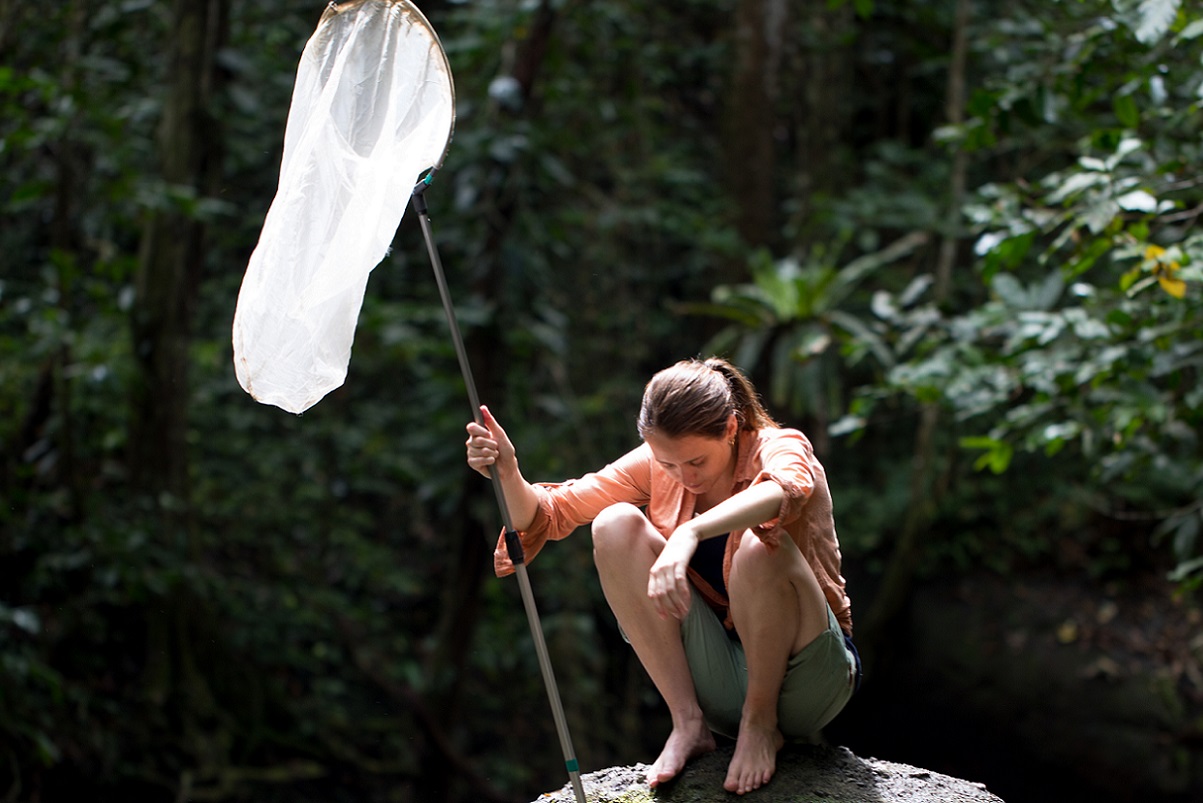
FiT sat down to talk with Flinders University PhD student Olivia Davies about her studies into the unknown importance – and fragile ecology – of Australia’s native bees.
What made you decide to work in the research field?
I’ve always been in love with nature and fascinated by insects and creepy crawlies. My poor parents were always finding jars of bugs under my bed or tanks of tadpoles in our backyard, so it was a natural progression for me to study them as an adult. Now I keep terrariums of insects and frogs in my house and my parents are still disturbed, but much more supportive.
What is your current research about?
I’m researching a group of native bees called Hylaeinae or masked bees. This bee group is one of the most diverse in Australia, but we know little about their ecology and biology.
I discovered that some of these bees have a very unusual genetic condition, hardly seen in plants or animals, as well as an infection of a bacterial parasite called Wolbachia. Strangely, the parasite may be enabling this unusual genetic condition in these bees, which suggests that the parasite has some control over the genetics of its host. I’m exploring patterns between the parasite and their bee hosts across as many species of hylaeine as I can.
How will your work benefit the wider community?
Bees are essential pollinators, but they are also among many of Australia’s native species under threat due to human activity. Australia has around 2000-3000 native bee species (and the honeybee isn’t one of them). I’m trying to highlight the uniqueness of Australia’s bee fauna and inspire others to nurture and protect them.
What has been your proudest moment as a researcher?
Research is a marathon of tasks and an accumulation of small victories. My proudest moment came recently when I was quietly reflecting on my achievements over the past four years. It put all the little things in perspective and inspired me to keep moving forward.
What has been your most challenging moment as a researcher?
It’s tough to receive rejection letters. Applying for funding can leave you feeling completely defeated. I once received feedback that completely invalidated me and my research project. It was personal and it hurt – a lot. I felt like quitting. But I have an amazing, talented group of people supporting me, so I take their word over a stranger’s.
What does a normal day look like for you?
Every day is different, and I love that. While I’m often sitting at a desk looking at my computer, I’m always dreaming about going out on fieldwork.
If there is one piece of advice you could impart on future researchers and university students, what would it be?
Maintain your enthusiasm for curiosity. Remember your roots, keep your eyes and ears wide open, don’t subscribe to arrogance, and value the lessons available in every experience.

